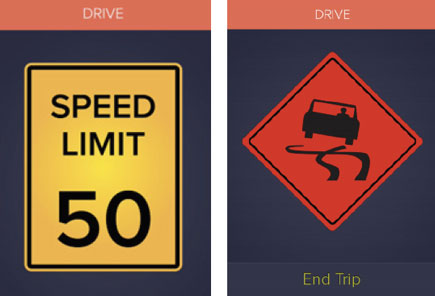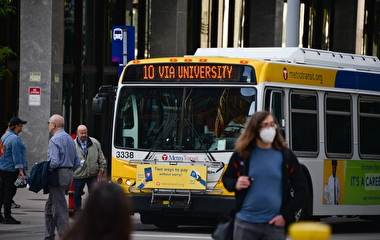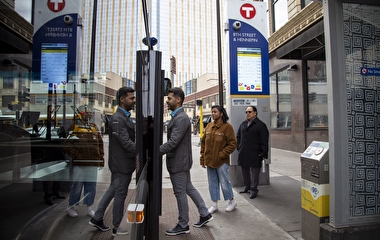An innovative driving support app designed by U of M researchers may be an effective tool to improve attention and reduce certain types of risky driving behaviors in older drivers, according to results of a new two-state field operational test.
“We wanted to investigate the impact of our RoadCoach driving support app on risky driving behaviors among older adults, because this group currently has the highest fatality rate per 100 million miles driven, and we expect a significant increase in the number of older drivers on the roads as the Baby Boomer generation ages,” says Nichole Morris, director of the U of M’s HumanFIRST Laboratory and the project’s principal investigator. “This disproportionate fatality risk is linked to several factors and may manifest through measurable driving behaviors such as hard braking or failure to respond to speed limits. Our hope is that these issues could be partially mitigated by effective coaching in real time with an in-vehicle support system.”
Originally, the RoadCoach app was developed to improve safe driving behavior in teen drivers. HumanFIRST researchers then modified the app to support all drivers regardless of age; it was found to have high usability and user acceptance among older drivers through a series of focus groups, usability tests, and a controlled field test.
speed limit (left) or performed a hard braking maneuver (right).
In a new study funded by the Roadway Safety Institute, researchers set out to investigate the impact of RoadCoach feedback on risky driving behaviors among older adults. The team also wanted to evaluate user acceptance of this technology over an extended period and measure the presence of short-term changes in driving behavior once feedback was removed. To do so, they conducted a 12-week field operational test that included a group of 28 drivers aged 65 and older in both Kansas and Minnesota.
The test period included three weeks of baseline driving behavior, six weeks of driving behavior with RoadCoach feedback, and three weeks of follow-up with no RoadCoach feedback. During this time, the app was loaded onto participants’ mobile phones, connected to their vehicles’ Bluetooth speakers, and set to record driving metrics such as hard braking, excessive accelerations, aggressive turning, stop-sign violations, speed warnings, speed violations, and distance traveled.
Results of the study show that RoadCoach had a largely positive effect on driving performance while the feedback was active. “We saw that risky behaviors such as speed warnings, speed violations, hard braking, and stop-sign violations showed either significant improvement or a trend toward improvement from the baseline to the feedback phase,” Morris says. “There also appeared to be some training effect with the RoadCoach app—we found that hard braking and stop-sign violations showed sustained improved performance in the final no-feedback phase.”
In addition, the app had high satisfaction and trust among users, with drivers reporting that the app helped improve their attention and focus on the task of driving.
“We’ve seen that some drivers are anxious about the potential loss of their driving independence and are open to the use of technology to help retain it,” Morris says. “In the future, we hope to examine the extent to which in-vehicle coaching could help prolong or even improve safe driving among older drivers.”




